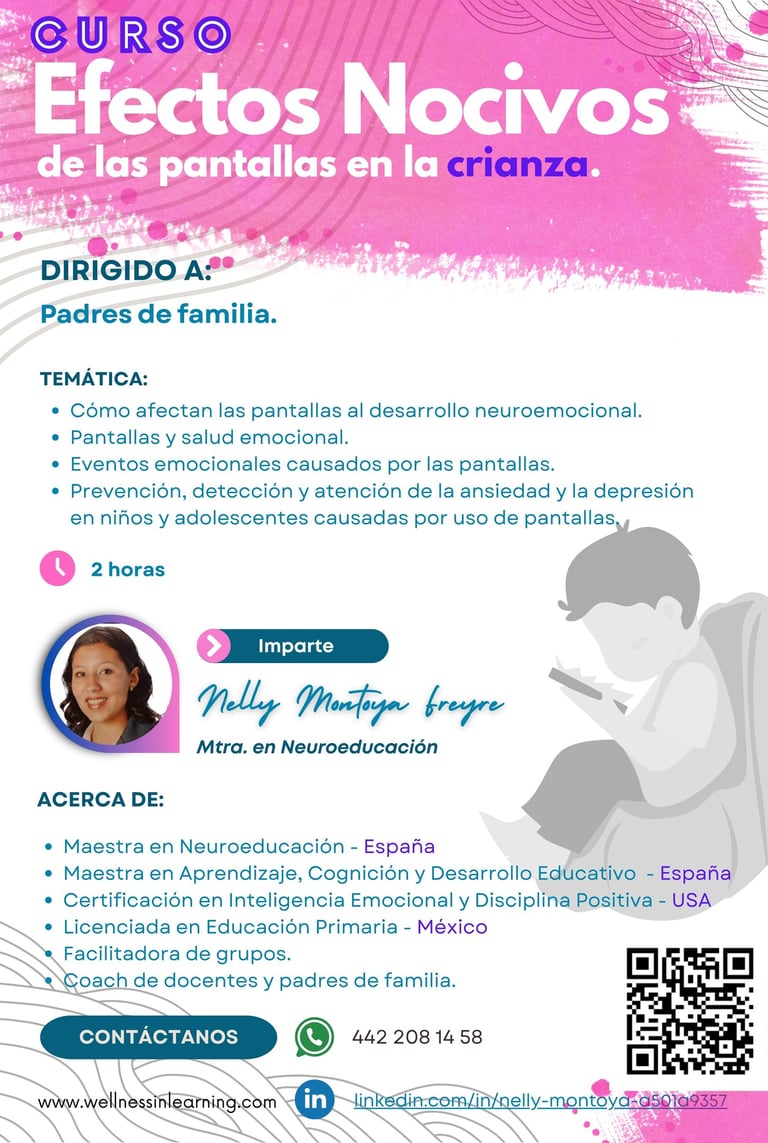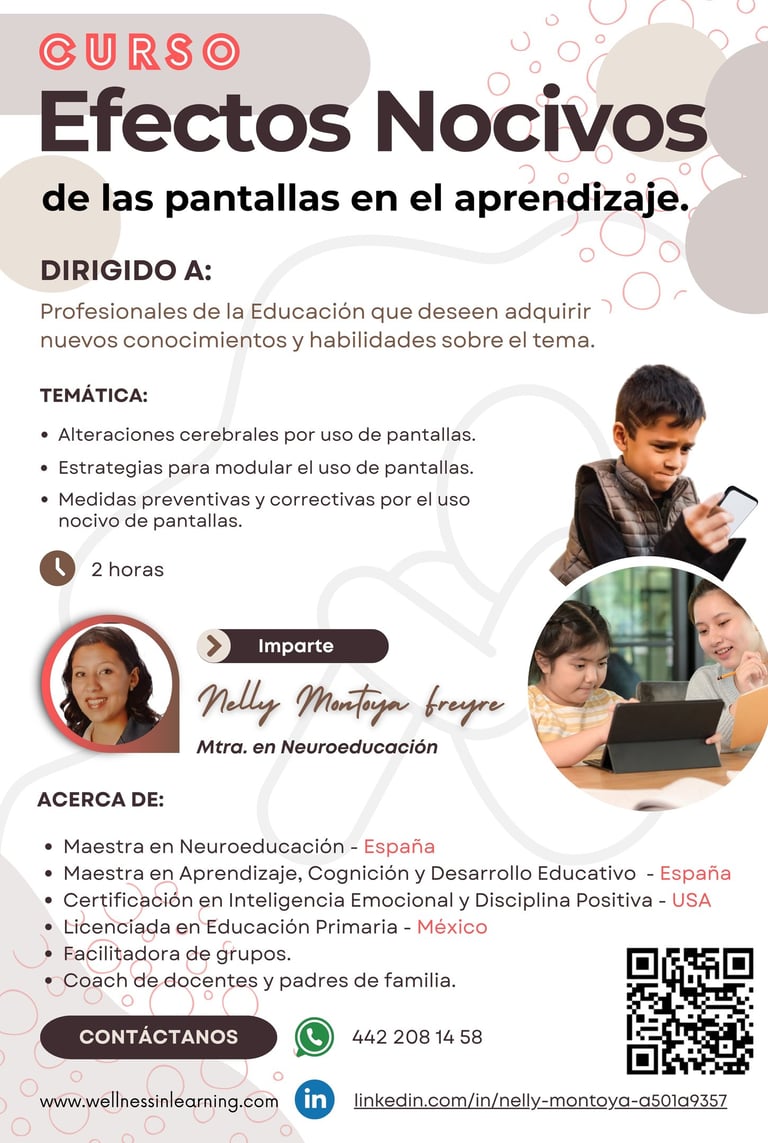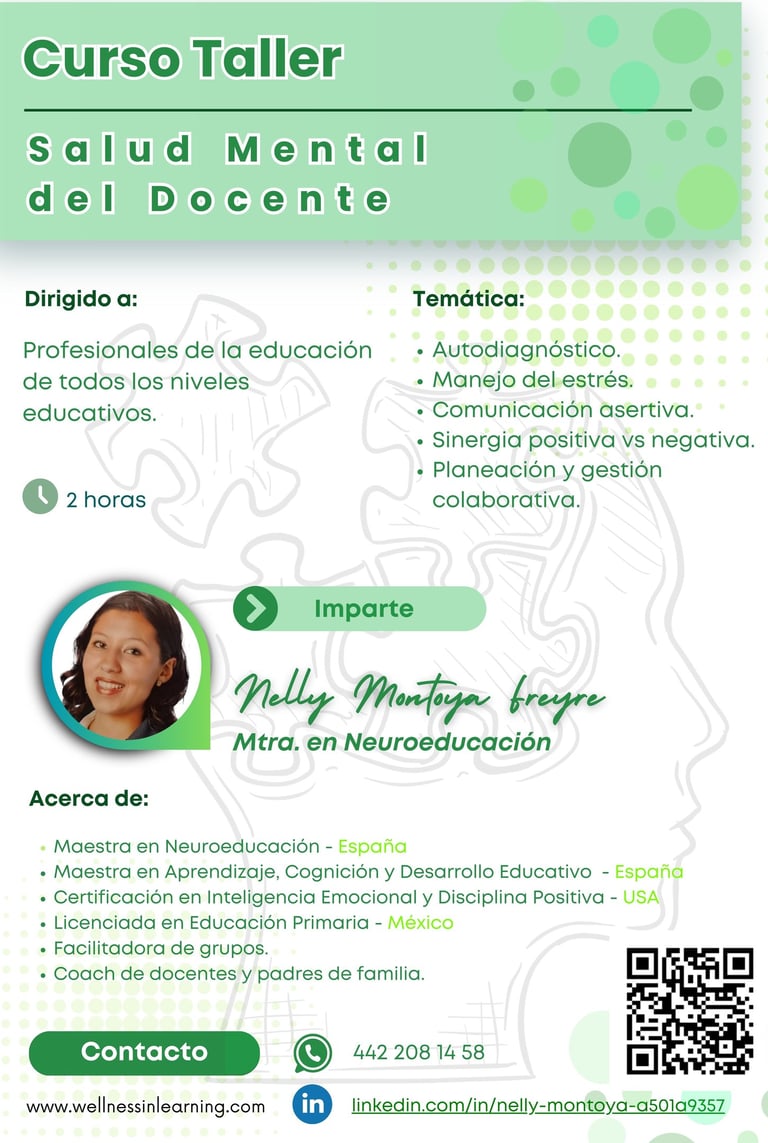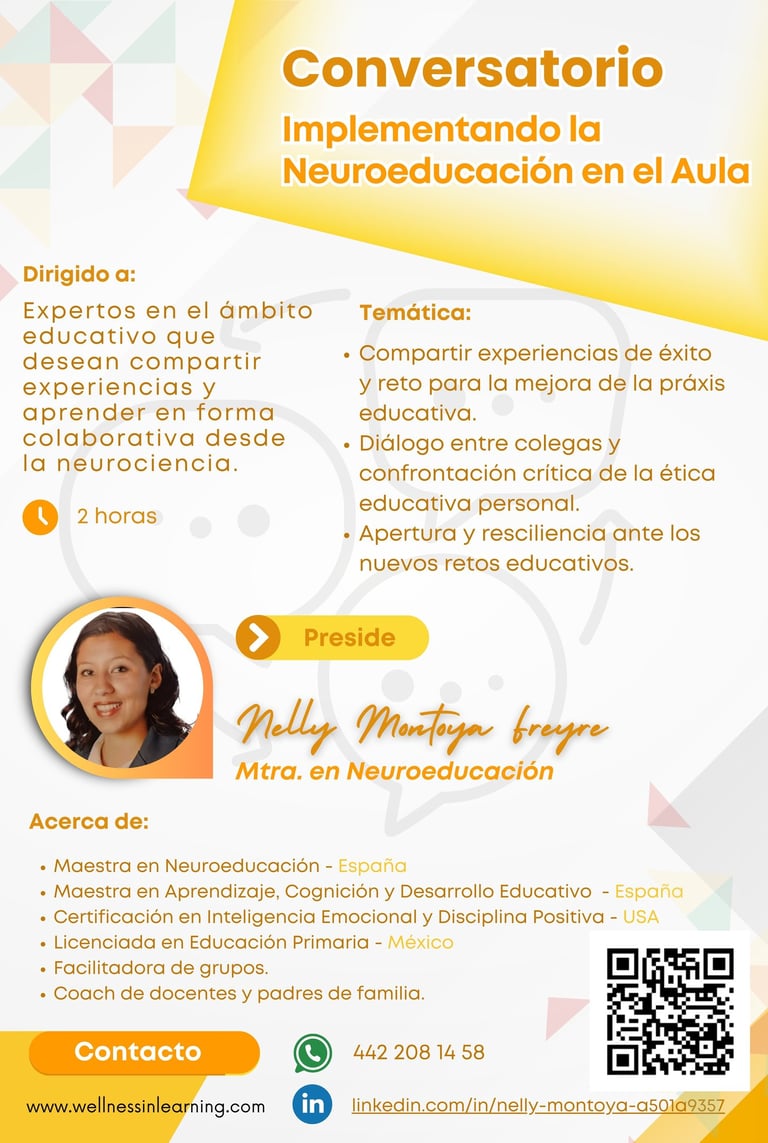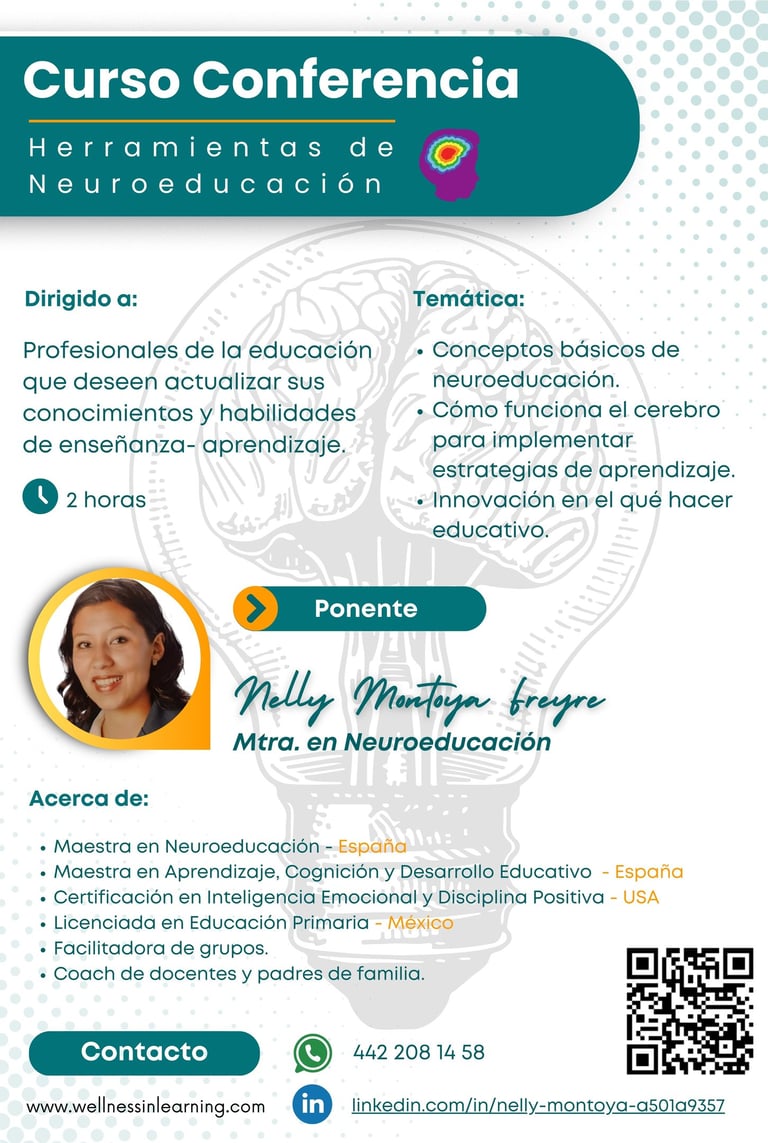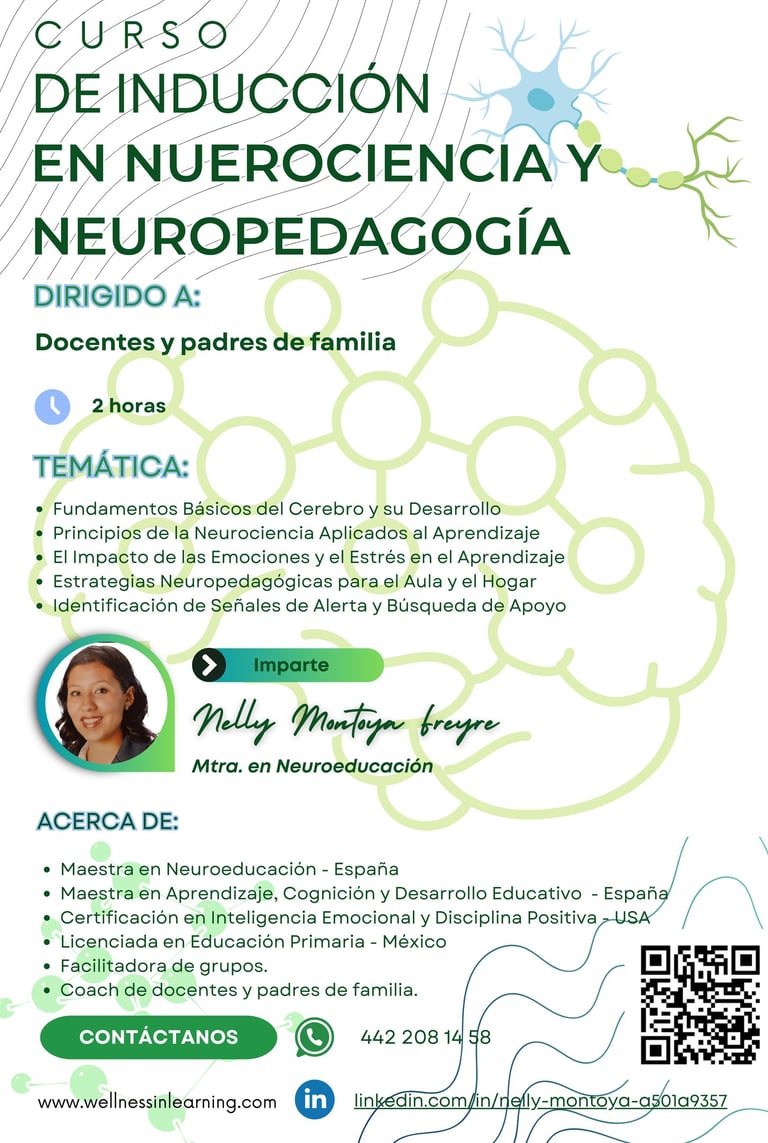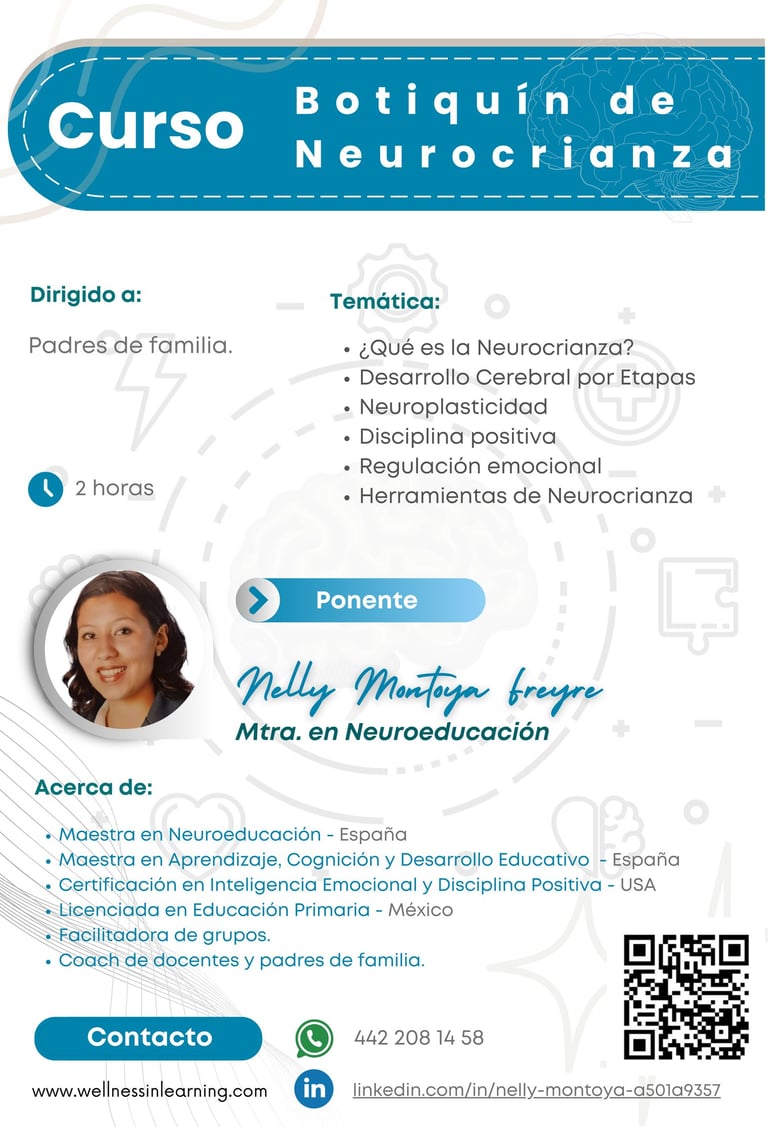Courses and Conferences in Cognitive Neuroscience and Neurodiversity
Interact and learn from experts, update your knowledge, and apply innovative tools to drive learning and well-being in your institution.
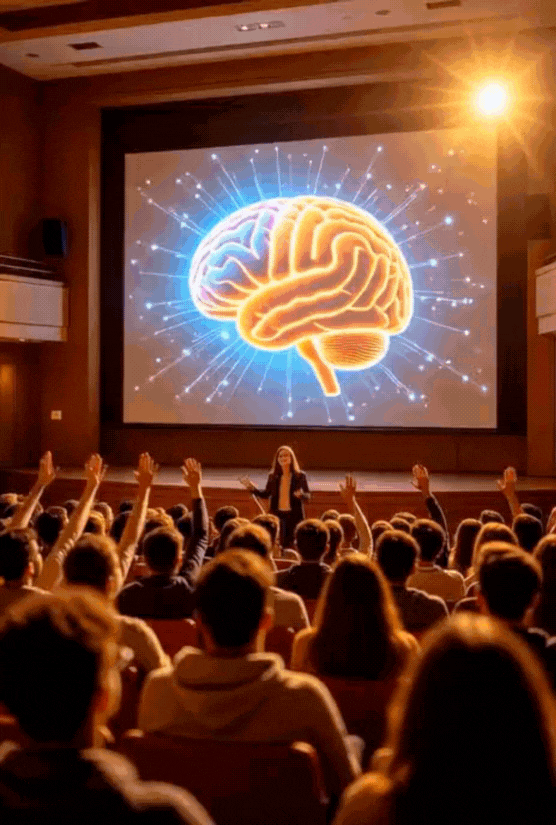

Science-Based Training for Educators, Families, and School Leaders
Stay ahead of the curve with cutting-edge knowledge at the intersection of neuroscience and education. Our courses and lectures—available both in-person and on-demand—are designed for those who are defining the future of learning: educators, school principals, and parents. Topics include:
Neuro-Parenting: Practical tools to support brain development and emotional regulation at home.
Neuroscience Educational Tools: Cognitive strategies to optimize classroom engagement and learning outcomes.
Brain Function and Learning: Understand how memory, attention, and emotions influence the learning process.
Each session combines research-based content with practical applications, providing you with immediate, actionable tools to enhance well-being and learning in your specific context.
In the current educational landscape, the constant pursuit of innovative, evidence-based strategies to optimize student learning and community well-being is a fundamental priority. We present a strategic opportunity to achieve these goals through the cognitive neuroscience conferences and courses we offered.
Cognitive Neuroscience: An Imperative for 21st-Century Education
Cognitive neuroscience, the discipline that merges insights from neuroscience, psychology, and education, provides a profound understanding of how the brain learns. By integrating this knowledge into our pedagogical practices and school management, we can unlock our students' maximum potential and create more effective and enriching learning environments.
Why Invest in Cognitive Neuroscience Conferences and Courses?
Optimizing Learning Through Science:
Solid Scientific Evidence: Our conferences and courses are based on rigorous, up-to-date neuroscientific research on how the brain processes information, consolidates memory, manages emotions, and is motivated.
Innovative Pedagogical Strategies: Participants will learn practical, directly applicable classroom strategies designed to optimize student attention, memory, motivation, and comprehension, thereby maximizing academic performance.
Personalizing Learning: Cognitive neuroscience provides tools to better understand the diversity of learning styles and individual student needs, facilitating the implementation of more personalized and effective pedagogical approaches.
Fostering Holistic Well-being:
Brain-Well-being Connection: We integrate brain understanding with strategies to promote the emotional, social, and cognitive well-being of both students and teachers.
Reducing Stress and Anxiety: Participants will learn how stress impacts the brain and acquire neuroscience-based tools to create learning environments that are safer, calmer, and conducive to holistic development.
Promoting Resilience and Self-Regulation: Cognitive neuroscience offers insights on how to develop students' capacity to manage their emotions, overcome challenges, and learn from mistakes—crucial skills for long-term success.
State-of-the-Art Professional Development for the Teaching Staff:
Empowerment and Motivation: Providing our educators with access to vanguard knowledge in cognitive neuroscience not only improves their pedagogical skills but also boosts their motivation, confidence, and sense of professionalism.
Common Language and Collaboration: A shared understanding of cognitive neuroscience principles facilitates communication and collaboration among teachers to implement coherent and effective strategies school-wide.
Adaptability to 21st-Century Needs: Cognitive neuroscience prepares our educators to address the challenges and opportunities of modern education, equipping them with the tools needed to form critical, creative, and emotionally intelligent citizens.
Innovative and Forward-Thinking Educational Leadership:
Differentiation and Institutional Prestige: By adopting a cognitive neuroscience-based approach, our institution is positioned as a leader in implementing innovative, well-being-centered educational practices, attracting families committed to quality education.
Informed Decision-Making: The knowledge gained through cognitive neuroscience will allow us to make more informed and strategic decisions in curricular planning, school organization, and resource allocation.
Long-Term Impact: Investing in cognitive neuroscience is investing in the future of our students and in the sustainability of an educational institution that truly makes a difference in their lives.
Educational excellence and the well-being of our youth are priorities, and cognitive neuroscience presents itself as a powerful tool to transform pedagogical practice and achieve our educational goals.
We urge you to seriously consider the valuable opportunity we offer through our cognitive neuroscience conferences and courses. This strategic investment will not only directly benefit our students and teachers but will also strengthen our institution's leadership and solidify its position as a benchmark in 21st-century education.
Empowering Minds Through Neuroscience
"
Statistical Data Supporting Our Approach
The general principles of cognitive neuroscience and its impact on learning and well-being are underpinned by a growing body of research. Below are key areas with supporting statistics that align with the benefits we advocate:
Improved Academic Performance
A study on cognitive neuroscience in higher education demonstrated a 15% improvement in academic performance after implementing cognitive neuroscience strategies (Journal of Teaching and Educational Research, 2023).
Research indicates that understanding brain function can lead to more effective pedagogical strategies, enhancing student engagement and learning outcomes (Frontiers in Education, 2024).
Greater Information Retention
The same study found a 40% increase in long-term information retention resulting from cognitive neuroscience approaches (Journal of Teaching and Educational Research, 2023).
Cognitive neuroscience aims to translate laboratory research on cognition and memory into effective teaching methods (Frontiers in Education, 2024).
Enhanced Attention and Motivation
Instruction centered on cognitive neuroscience has been shown to stimulate intrinsic motivation, leading to an 80% increase in student participation (Journal of Teaching and Educational Research, 2023).
Cognitive neuroscience-based strategies can improve teaching by focusing on stimuli and motivation, leading to better academic performance (ResearchGate, 2024).
Impact of Emotions on Learning
Neuroscience research highlights the crucial role of emotion and pleasure in the learning process (El Correo de la UNESCO, 2023). Understanding the neural mechanisms of motivation and emotion allows educators to create more favorable learning environments (Frontiers in Education, 2024).
Awareness of emotional reactions and coping strategies can improve students' emotional well-being and foster a positive school climate (GSD Journal, 2024).
Stress Reduction
Cognitive neuroscience provides insights into how stress affects the brain and can inform strategies to reduce anxiety and create more effective learning environments (Walden University, n.d.).
Teachers' Improved Understanding of Cognitive Neuroscience
Studies show a significant increase in teachers' understanding and application of cognitive neuroscience principles following training (BIO Web of Conferences, 2024). The average comprehension score rose from 2.7 to 4.5 after training.
Enhanced Teaching Practices
Cognitive neuroscience training equips teachers with the skills to create friendly learning environments where students feel safe and supported (GSD Journal, 2024).
Cognitive neuroscience offers improved strategies for understanding and developing the teaching-learning process, adapting instruction to students' individual needs (MDPI, 2023).
Evidence-Based Practices
Cognitive neuroscience aligns with the growing emphasis on evidence-based practices in education, utilizing research on brain function to inform teaching and learning strategies (Voyager Sopris Learning, 2023; Australian Department of Education, n.d.).
Understanding the neural dynamics in learning and teaching supports the development of evidence-based educational practices (Frontiers in Education, 2024).
The global trends highlighted above are relevant and confirm that investing in cognitive neuroscience aligns with the worldwide focus on improving educational quality and student well-being.
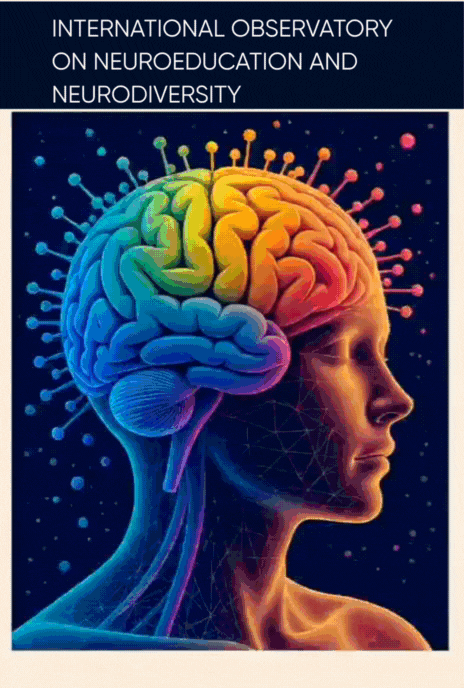

Therefore, the robust and growing body of research in cognitive neuroscience provides compelling evidence for the potential benefits of investing in these conferences and courses.
Undoubtedly, this constitutes an investment in evidence-based strategies that are likely to lead to positive outcomes for students, staff, and the institution as a whole.
info@observaneuro.com
The International Observatory of Neuroeducation and Neurodiversity® its logo, and slogans constitute industrial property and are either registered or may be in the process of registration with the relevant authorities. Therefore, any unauthorized reproduction thereof by any means is strictly prohibited.
© International Observatory of Neuroeducation and Neurodiversity 2025. All rights reserved.
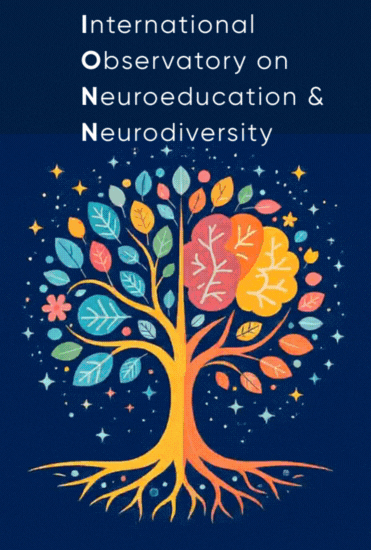

Privacy Policy


